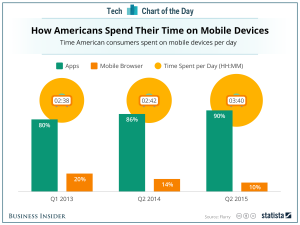What is Cost Per Acquisition?
The CPA (cost per acquisition) metric simply looks at the cost of getting someone to do what you desire whether that be a sale, sign-up, email submission, etc. As a Search Engine Marketing specialist, I will consider CPA’s role in Pay-Per-Click (PPC) campaigns.
Step 1: Calculate your Cost Per Lead
A simple calculation of your CPA is the total amount spent on PPC divided by the total amount of conversions in the same time period.
$ 1,000 cost ÷ 100 leads = $ 10 cost per lead
Step 2: Calculate Your Cost Per Acquisition of a Customer
Next, to determine your cost of acquiring a customer, you’ll ask your sales team how many of these leads actually become sales. Perhaps they say 10% or 1 in 10 of your conversions produce a sale.
Leads (100) x closing ratio (10%) x cost per lead ($ 10) = $ 100
Step 3: Estimate Your Budget
Next, to estimate your monthly PPC budget, we take the cost of acquiring a customer, $ 100, and multiply this by how many customers you need per month. Example, if you need 25 conversions that result in a sale; then your budget should be at least $ 2,500 per month.
Desired conversions (25) x cost per acquisition of customer ($ 100) = $ 2,500
Now, with the average cost of obtaining a customer at $ 100, we can now analyze how to optimize our CPA.
Is Your Cost Per Acquisition too high?
Even if it’s not, it’s always advantageous to lower your CPA. Here are 4 quick tips:
Check Your Search Queries for Opportunities
1. Look at the queries your ads are being triggered by. To do this, run search query reports. If your CPA is too high, it is likely that there are irrelevant queries triggering your ads and costing you clicks that you can exclude by making additions to your negative keyword lists.
Additionally, look for relevant queries—there could be opportunities for new keywords that will allow you to hone your targeting. Optimizing your keywords, negative and positive, will help you lower click costs.
Improve & Test Your Ad Copy
2. Give your ads the quality time they deserve. After all, you are aiming for a high-quality score. Use the search query reports you have run to create both compelling and relevant ad copy that caters to the terms your searchers use. Use multiple variations of ads to test for what works and for what doesn’t.
Furthermore, improving the caliber and relevance of your ads will improve your click-through rate and quality score, which in turn will lower your CPA.
Landing Pages Are Essential
3. Make your landing pages somewhere a person would want to land. If a potential customer has entered a search, seen your ad, and clicked it, then you know what information they are expecting; provide the searcher with the details that will make them want to convert. These details are best served on a page that is dedicated entirely to a single offer, whether it is a product or service.
Your ads make use of intelligent targeting; do not fail the sale with a generic landing page.
Adjust Your Bids
4. After you’ve focused on improvement, it is time for bid adjustment. Conduct CPA calculations using information from specific ads. If they’re underperforming, adjust bidding for a click value that will meet your cost per acquisiton goals. Scripts, templates, and other tools might help you adjust your account’s bids at scale.
If All Else Fails, Contact Us!
Finally, if the above 4 tips don’t help, or you don’t have time to implement them, it might be time to consider some expert PPC management. We’re always willing to audit a PPC account and help you find out what kind of results you could be obtaining. Cost per acquisition is one of our key metrics. We always set a target CPA that’ll keep your account profitable and within your budget.
Digital & Social Articles on Business 2 Community(79)
Report Post





